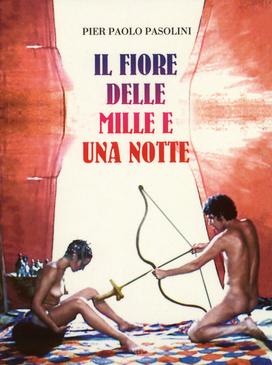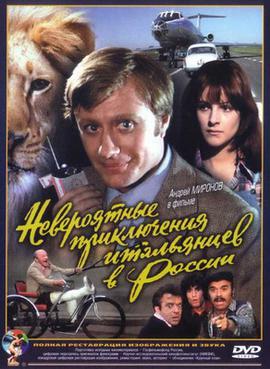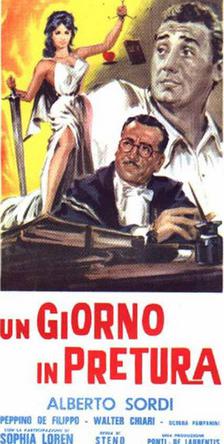
Salò, or the 120 Days of Sodom, billed on-screen as Pasolini's 120 Days of Sodom on English-language prints and commonly referred to as simply Salò, is a 1975 political drama art horror film directed and co-written by Pier Paolo Pasolini. The film is a loose adaptation of the 1785 novel The 120 Days of Sodom by Marquis de Sade, updating the story's setting to the World War II era. It was Pasolini's final film, released three weeks after his murder.

Pier Paolo Pasolini was an Italian poet, film director, writer, screenwriter, actor and playwright. He is considered one of the defining public intellectuals in 20th-century Italian history, influential both as an artist and a political figure. He is known for directing the movies from Trilogy of Life.

Antonio Griffo Focas Flavio Angelo Ducas Comneno Porfirogenito Gagliardi De Curtis di Bisanzio, best known by his stage name Totò, or simply as Antonio de Curtis, and nicknamed il principe della risata, was an Italian actor, comedian, screenwriter, dramatist, poet, singer and lyricist. He is commonly referred to as one of the most popular Italian performers of all time. While best known for his funny and sometimes cynical comic characters in theatre and then many successful comedy films made from the 1940s to the 1960s, he also worked with many iconic Italian film directors in dramatic roles.

Silvana Mangano was an Italian film actress. She was one of a generation of thespians who arose from the neorealist movement, and went on to become a major female star, regarded as a sex symbol for the 1950s and '60s. She won the David di Donatello for Best Actress three times – for The Verona Trial (1963), The Witches (1967), and The Scientific Cardplayer (1973) – and the Nastro d'Argento for Best Actress twice.

Laura Betti was an Italian actress known particularly for her work with directors Federico Fellini, Pier Paolo Pasolini and Bernardo Bertolucci. She had a long friendship with Pasolini and made a documentary about him in 2001.

Teorema, known as Theorem in the United Kingdom, is a 1968 Italian surrealist psychological drama film written and directed by Pier Paolo Pasolini and starring Silvana Mangano, Terence Stamp and Massimo Girotti, with Anne Wiazemsky, Laura Betti, Andrés José Cruz Soublette, Alfonso Gatto and Carlo De Mejo. Pasolini's sixth film, it was the first time he worked primarily with professional actors. In this film, an upper-class Milanese family is introduced to, and then abandoned by, an otherworldly man with a mysterious divine force. Themes include the timelessness of divinity and the spiritual corruption of the bourgeoisie.

The Canterbury Tales is a 1972 medieval erotic comedy Italian film directed by Pier Paolo Pasolini based on the medieval narrative poem by Geoffrey Chaucer. The second film in Pasolini's "Trilogy of Life", preceded by The Decameron and followed by Arabian Nights, it won the Golden Bear at the 22nd Berlin International Film Festival.

Mauro Bolognini was an Italian film and stage director.

Arabian Nights is a 1974 fantasy erotic Italian film directed by Pier Paolo Pasolini. Its original Italian title is Il fiore delle mille e una notte, which means The Flower of the One Thousand and One Nights.

Teresa Ann Savoy, FRSA was a British actress who appeared in a number of Italian films.

The Decameron is a 1971 medieval erotic comedy anthology film written and directed by Pier Paolo Pasolini, based on the 14th-century allegory by Giovanni Boccaccio. It is the first film of Pasolini's Trilogy of Life, the others being The Canterbury Tales and Arabian Nights. Each film was an adaptation of a different piece of classical literature focusing on ribald and often irreligious themes. The tales contain abundant nudity, sex, slapstick and scatological humour.

Giovanni "Ninetto" Davoli is an Italian actor who became known through his roles in several of Pier Paolo Pasolini's films.

Furio Scarpelli, also called Scarpelli, was an Italian screenwriter, famous for his collaboration on numerous commedia all'italiana films with Agenore Incrocci, forming the duo Age & Scarpelli.

Oedipus Rex is a 1967 fantasy drama Italian film directed by Pier Paolo Pasolini. Pasolini adapted the screenplay from the Greek tragedy Oedipus Rex written by Sophocles in 428 BC. The film was mainly shot in Morocco. It was presented in competition at the 28th Venice International Film Festival. It was Pasolini's first feature-length color film, but followed his use of color in "The Earth Seen from the Moon" episode in the portmanteau film The Witches (1967).

The Scientific Cardplayer, also known as The Scopone Game, is a 1972 Italian comedy-drama film directed by Luigi Comencini. The screenplay was written by Rodolfo Sonego. In 2008, the film was included on the Italian Ministry of Cultural Heritage’s 100 Italian films to be saved, a list of 100 films that "have changed the collective memory of the country between 1942 and 1978."

Unbelievable Adventures of Italians in Russia or A Crazy, Crazy, Crazy Race in Russia is a 1974 Soviet-Italian comedy film directed by Eldar Ryazanov and Franco Prosperi. The plot is about a group of Italian treasure hunters who set on a journey to find long-forgotten treasure in Leningrad.

A Day in Court is a 1954 Italian comedy film directed by Steno and starring Peppino De Filippo, Silvana Pampanini, Sophia Loren, and Alberto Sordi. The film is an anthology, consisting of a day's cases before Judge Salomone Lo Russo in a court in Rome.

Caprice Italian Style is a 1968 Italian comedy film directed by six different directors, including Mario Monicelli and Pier Paolo Pasolini. The film starred both Totò and the comic duo Franco and Ciccio.
Clint Eastwood has had numerous casual and serious relationships of varying length and intensity over his life, many of which overlapped. He has sired eight known children by six women, only half of whom were contemporaneously acknowledged. Eastwood refuses to confirm his exact number of offspring, and there have been wide discrepancies in the media regarding the number. His biographer, Patrick McGilligan, has stated on camera that Eastwood's total number of children is indeterminate and that "one was when he was still in high school."
The Graviano family is a Sicilian Mafia clan, composed of four mafioso siblings: Benedetto, Filippo, Giuseppe and Nunzia. Their father was Michele Graviano, uomo d'onore that belonged to the Brancaccio Mafia family and was murdered by Gaetano Grado in 1982.


















